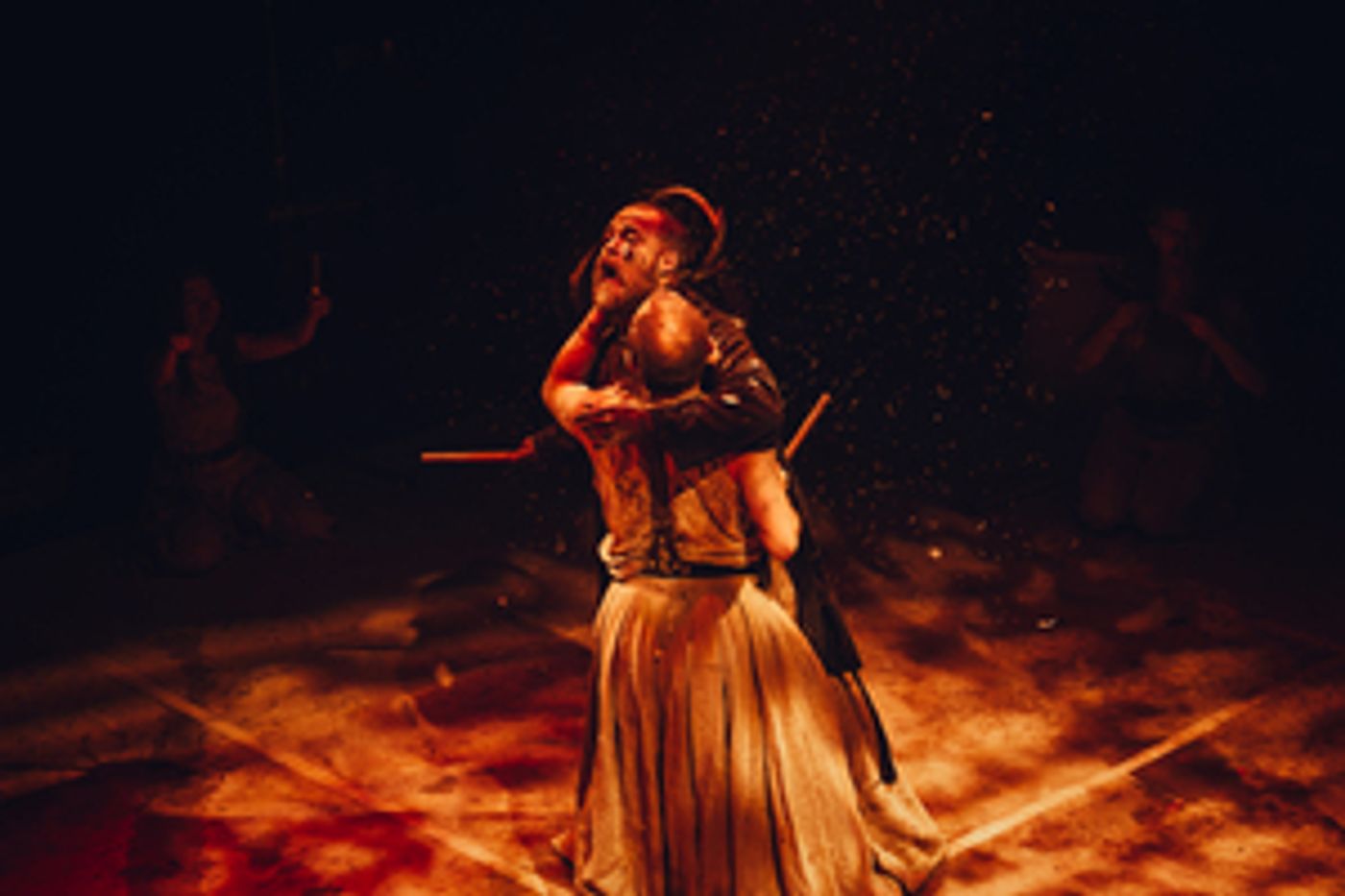Review: MACBETH, Southwark Playhouse Borough
A wild combination of theatrical storytelling approaches fails to resolve into a coherent whole

 There's not much point in doing Macbeth as it has been done for 400 years or more and Flabbergast Theatre certainly present something new - the question, as ever with a reimagining, is does it work?
There's not much point in doing Macbeth as it has been done for 400 years or more and Flabbergast Theatre certainly present something new - the question, as ever with a reimagining, is does it work?
We open on a company of eight, caked in muddy clay on a set that conjures the bleakness of Picardy in World War I. For me, it also suggested Joel Coen's 2021 black and white film, the greys on greys on greys in both conceptions of the play speaking to a psychological rather than geographic space. Drums roll like thunder, a portent of the lightning flashes of madness to come - there's madness in the fetid air.
What we see was devised over ten days, the company's first foray into working with a narrative text. The actors draw on their experience in movement, music, clowning, puppetry, immersion and noise to tell the familiar tale of the bloody rise and fall of the infamous Scottish king and queen.
All this frenetic sensory overload, led by Henry Maynard and Briony O'Callaghan as the demonic and doomed pair, adds much to the play. The chaos in the immediate aftermath of the discovery of Duncan's assassination rings horribly true; the slow realisation by Lady Macbeth that the light that illuminated her life was going out, is beautifully done; and Fleance, animated as a puppet, is a decision that captures his delicate vulnerability.
But we lose a lot too. So much of the text is shouted at us at both high volume and high velocity, more or less the default setting for all the ensemble, that we just can't decipher the words. It's irritating because when the cast use their normal speaking voices, they catch the poetry beautifully - but soon there's drums and gongs and staffs being smashed against the floor and it's buried.
Not only do we lose some of the greatest speeches in Shakespeare (some do survive!) but I would be amazed if anyone unfamiliar with the play could follow who was who and what was what. I've seen maybe a dozen Macbeths and, by the time I worked out who was speaking / shouting in one scene, the next had started up and I was back where I started and itching to pull up the synopsis on my phone to relocate myself.
That's maybe a little unfair, as this production goes for an impressionistic approach to the text, the emotions and psychosis as much (or more) in the movement (by Matej Matejka) as in the words. But, and I speak as fan of a contemporary dance interpretation of the play I saw ten or so years ago, the hybrid of speech, movement and performance art never resolves into a coherent storytelling methodology, the techniques in competition for our attention rather than complementing each other.
Flabbergast's bold approach has the courage and confidence that theatre needs right now and some will be so carried away on the sound and fury that they will love the work's energy and emotional turmoil. For me, it didn't work in this instance, but I look forward to seeing how they might tackle another play, perhaps one without as much mayhem already in the plot, one in which the company can discover the spikes they so enjoy exploring without mounting quite such an assault on our senses.
Macbeth at Southwark Playhouse Borough until 8 April
Photo Credit: Daniel Chrisostomou
Reader Reviews
Videos

